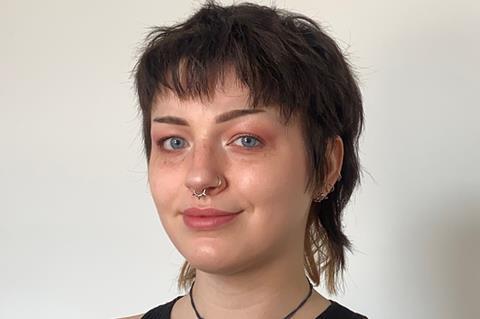
The film industry is tough. Long days are expected, breaks are assumed to be worked through, sleep is little and the day doesn’t end when it’s called a wrap.
The film industry is even tougher as a disabled person. Disabilities, chronic illness, physical problems that act as another barrier to accessibility on set; these go unnoticed and unwanted in an environment that thrives from taxing work and protracted days.
I look back on film sets and marvel at how I survived while enduring a flare up. I can’t forget the countless times I’ve fallen asleep on the job, not just because of simple tiredness, but because I’m fatigued and aching and uncomfortable and nauseous. I’ve rarely been vocal about my disability in relation to film – I do believe I need to start being louder.
I have an autoimmune disease, and for this I take immunosuppressive medication that severely dampens my body’s defences. I make sure I’ve got all my medication, contingency plans, and pain relief for every day on set. I’ve got another call sheet in my own head – what I can or can’t eat, where the nearest toilet is, when I can sit down, what might affect me the most and how I can deal with it. I even have a parasol so I can go outside in the sun, as my immunosuppressants mean I’m more susceptible to different cancers, such as skin cancer; I try to avoid certain projects in the summer which can make freelance work hard to navigate.
While exhausting, I’m happy to accommodate myself where I can. I know my limits, I know my capabilities – I can’t go in the sun, so I don’t. I’m not asking for all films to now be set indoors so I can work. I am asking productions to be mindful of the physical toll they have on their team. I can look after myself to a certain point, but when 10 shots have been added to the call sheet and lunch has to be skipped because there’s no time for a break and I can’t sit down because all the budget was spent on the cast and equipment and not on a few foldable chairs for the crew who’ve been on their feet since dawn – then I feel condemned. I suffer, my body suffers, and the next few days suffer because I can’t do my job.
All disabilities are different, and it seems daunting to think we should accommodate for all of them when a production is already such an intricate web. But it’s not hard in practice when understanding that it’s an extension of the current working conditions that plague productions right now.
If an able-bodied crew member struggles with an unforeseen extended day of 15 hours and sudden schedule changes, then their chronically ill colleague working alongside them in the same department might outright be unable to do that. Even if they complete that day, it may write-off the next few days.
It’s hard to navigate the organised chaos of a film set when your body is itself unorganised chaos, but that doesn’t mean we aren’t allowed to be present. It means working hours need to be kept down, sudden inevitable issues need to be dealt with in a more compassionate manner to consider all crew members, and, ultimately, the people in charge need to be kinder to the people creating their vision. The art is important, but no true art is made without artists.
We should be accommodated for in the process of planning. Don’t condemn chronically ill people to the production office to do paperwork as it’s too much hassle to have them on set, or leave disabled people at home because specialised transportation isn’t available. Make space for them. They’re just as creative and capable as the able-bodied person that will take their spot – maybe they’re even more creative and capable, they just need to be given the chance.
Theo Rintoul is a Hull-based videographer. She’s worked on a variety of independent film productions, including upcoming short Huggo starring Siobhan Finneran, and is involved in running a new film festival, pre-production for her own film, and writing a book.

























No comments yet